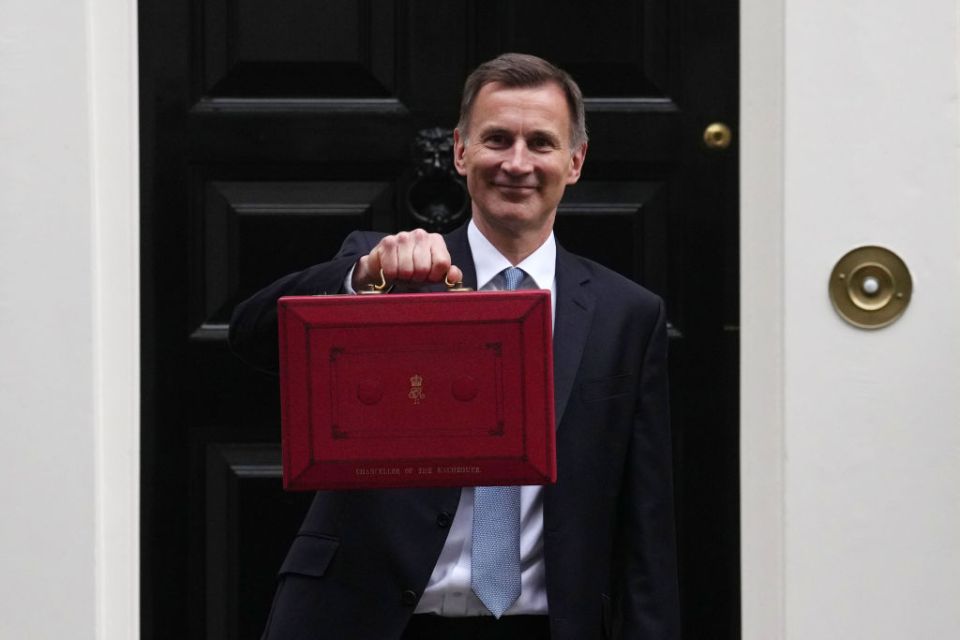Natwest: Why there may be a problem with Telling Sid

As Jeremy Hunt stood at the dispatch box to deliver his Autumn Statement last week, he allowed himself to indulge in a little nostalgia.
The government, he said, would look to offload its remaining 38 per cent stake in Natwest to retail investors. And to kick off proceedings, he deployed a sprinkle of 1980s messaging.
“It’s time to get Sid investing again,” Hunt cried to the chamber.
The Chancellor’s call back to the famous Thatcherite advertising campaign, designed to get the public buying up shares in privatised British Gas, has become a familiar refrain from the Treasury this year.
The now former City minister Andrew Griffith was first heard calling “come back Sid” at a UK Finance conference in Canary Wharf in June, and then doubled down on the message at a retail investment conference last month at Schroders.
M&S chair Archie Norman even used a similar message in calling for digitisation of shareholder communication and more engagement with individual investors.
But there may be a small issue with telling Sid this time around: it would almost certainly be illegal.
Under today’s financial promotion rules and the FCA’s stringent consumer duty, Thatcher’s shareholder push would have been quickly kiboshed without a lengthy list of caveats and warnings, experts say.
“The regulation of financial promotions has definitely come on since the eighties and before engaging on a mass market share ownership campaign today, a bank would have to jump through all sorts of hoops, including signing off on a ‘target market assessment’, ensuring that all comms are ‘fair, clear and not misleading’ and of course taking into account the FCA’s new consumer duty,” Peter Bevan, global head of Linklaters‘ financial regulation Group, tells City A.M.
“Sid was of course looking at investment in fossil fuels so the sustainability considerations would also come into play, including the FCA’s general anti-greenwashing rule which was coincidentally published just yesterday,” Bevan added.
Under current rules, only authorised individuals can issue marketing materials on behalf of securities, which ‘Tell Sid’ did pass on account of Rothschild issuing the message on behalf of the Treasury.
However, any advertisement for an IPO should also include a bold statement that it is not a prospectus and that investors should not buy any securities referred to in the advertisement except on the basis of information in the weighty prospectus. Tell Sid’s nudge to the British Gas prospectus may not pass muster.
Laith Khalaf, head of investment analysis at AJ Bell, adds the amount of financial regulation enacted since then “could fill several Bodleian libraries” and it seems doubtful the ads would screen today without “risk warnings that would exceed a five minute ad break.”
Tweeting Sid may be even more out of bounds. Those trying to push him into snapping up shares in British Gas could fall under the bounds of “unauthorised finfluencers” and feel the full wrath of the regulator.
“Promoting a regulated financial product or service without approval of an FCA authorised person, or providing financial advice without FCA authorisation, may be a criminal offence,” the FCA warned in July.

A HMT spokesperson said any “retail offer of the NatWest shareholding will obviously meet appropriate regulatory and legal obligations” and said it is “exploring options for the offer over the next 12 months.”
This all sounds a trivial exercise in comparing a past campaign with current rules, but for some, it points to a more troubling malaise still hobbling a culture of share ownership in the UK.
“This suggests that the aspirations of the government around getting the general public activated and building an equity culture are at odds with the regulatory risk framework that is in place to protect individuals,” an executive at one retail investment firm, tells City A.M..
“Does the Government realise this? Does the FCA realise this?”
Ministers have been on a drive to build back a culture of retail investment in a bid to unlock a supposed untapped pool of £740bn into the market.
Changes to the ISA regime in the Autumn Statement were similarly designed to try and encourage more DIY investors to start backing UK companies.
But the perennial issue hanging over the drive is one of culture and risk. At the moment, some retail investment firms argue regulation and rules are pulling in a different direction.
For the time being, the Chancellor may be advised to slip a “capital at risk” into future calls to get Sid investing again.